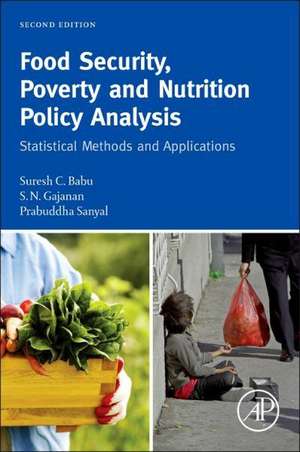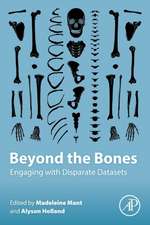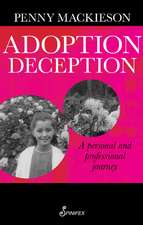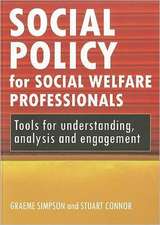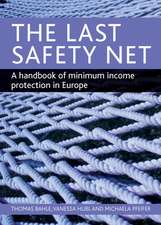Food Security, Poverty and Nutrition Policy Analysis: Statistical Methods and Applications
Autor Suresh Babu, Shailendra Gajanan, Prabuddha Sanyalen Limba Engleză Hardback – 9 apr 2014
Food Security, Poverty and Nutrition Policy Analysis, Second Edition has been revised and updated to include hands-on examples and real-world case studies using the latest datasets, tools and methods. Providing a proven framework for developing applied policy analysis skills, this book is based on over 30 years of food and nutrition policy research at the International Food Policy Research Institute and has been used worldwide to impart the combined skills of statistical data analysis, computer literacy and their use in developing policy alternatives.
This book provides core information in a format that provides not only the concept behind the method, but real-world applications giving the reader valuable, practical knowledge.
- Updated to address the latest datasets and tools, including STATA software, the future of policy analysis
- Includes a new chapter on program evaluation taking the reader from data analysis to policy development to post-implementation measurement
- Identifies the proper analysis method, its application to available data and its importance in policy development using real-world scenarios
- Over 30% new content and fully revised throughout
Preț: 712.27 lei
Preț vechi: 975.71 lei
-27% Nou
Puncte Express: 1068
Preț estimativ în valută:
136.29€ • 142.68$ • 112.77£
136.29€ • 142.68$ • 112.77£
Carte tipărită la comandă
Livrare economică 05-19 aprilie
Preluare comenzi: 021 569.72.76
Specificații
ISBN-13: 9780124058644
ISBN-10: 0124058647
Pagini: 648
Dimensiuni: 152 x 229 x 36 mm
Greutate: 1.13 kg
Ediția:2. Auflage.
Editura: ELSEVIER SCIENCE
ISBN-10: 0124058647
Pagini: 648
Dimensiuni: 152 x 229 x 36 mm
Greutate: 1.13 kg
Ediția:2. Auflage.
Editura: ELSEVIER SCIENCE
Public țintă
Food scientists and nutritionists, consultants, professionals and advanced students involved in the development and implementation of successful policies and programs for addressing the concerns of adequate food supply to the world.Cuprins
Section I: Food Security Policy Analysis1: Introduction to food security: concepts and measurement 2. Implications of technological change, post-harvest technology and technology adoption for improved food security – application of t-statistic 3. Effects of commercialization of agriculture (shift from traditional crop to cash crop) on food consumption and nutrition – application of chi-square statistic4. Effects of technology adoption and gender of household head: The issue, its importance in food security – application of Cramer's V and phi coefficient5. Changes in food consumption patterns: its importance to food security – application of one-way ANOVA6. Impact of market access on food security – application of factor analysis
Section II: Nutrition Policy Analysis7. Impact of maternal education and care on preschoolers’ nutrition – application of two-way ANOVA8. Indicators and causal factors of nutrition – application of correlation analysis 9. Effects of individual, household and community indicators on child's nutritional status – application of simple linear regression 10. Maternal education and community characteristics as indicators of nutritional status of children – application of multivariate regression
Section III: Special Topics on Poverty, Nutrition and Food Policy Analysis11. Predicting child nutritional status using related socioeconomic variables – application of discriminant function analysis12. Measurement and determinants of poverty – application of logistic regression models 13. Classifying households on food security and poverty dimensions – application of K-mean cluster analysis 14. Household care as a determinant of nutritional status – application of instrumental variable estimation 15: Achieving an ideal diet – modeling with linear programming 16. Food and Nutrition Program Evaluation
Section II: Nutrition Policy Analysis7. Impact of maternal education and care on preschoolers’ nutrition – application of two-way ANOVA8. Indicators and causal factors of nutrition – application of correlation analysis 9. Effects of individual, household and community indicators on child's nutritional status – application of simple linear regression 10. Maternal education and community characteristics as indicators of nutritional status of children – application of multivariate regression
Section III: Special Topics on Poverty, Nutrition and Food Policy Analysis11. Predicting child nutritional status using related socioeconomic variables – application of discriminant function analysis12. Measurement and determinants of poverty – application of logistic regression models 13. Classifying households on food security and poverty dimensions – application of K-mean cluster analysis 14. Household care as a determinant of nutritional status – application of instrumental variable estimation 15: Achieving an ideal diet – modeling with linear programming 16. Food and Nutrition Program Evaluation
